Buy Wine by the Case
209 products

- White Wine
- Chardonnay
- Dry
- Medium Bodied
- 750ml
- 12.7% alc./vol
About the Winery
Keint-He

Keint-he Winery & Vineyards is a boutique winery located in Prince Edward County. The winery has a strong focus on varietals that are typically grown in Burgundy, specifically Pinot Noir and Chardonnay; through which they truly express the best of the County with wonderful individual expressions. Keint-He’s approach to winemaking is as down-to-earth as it gets and their quality is second to none.
- Sweet Wine
- Gros Manseng, Petit Manseng
- Natural, Organic, Vegan-Friendly
- Medium Bodied
- 750ml
- 12.00% alc./vol
About the Winery
Clos Lapeyre

This family farm was traditionally dedicated to mixed farming with livestock, small fruits and grapes which were taken to the local cooperative. From 1985 onwards, the estate was turned over exclusively to viticulture when Jean-Bernard Larrieu gave birth to Clos Lapeyre.
Clos Lapeyre is a 12 ha domain owned by the Larrieu family, in Jurançon, Southwest France. It is situated south of Pau, nestling on steep slopes facing the Pyrenees. The vineyards are planted on terraces at an altitude of 250 m. Jean-Bernard Larrieu makes the wines, and his aim is produce wines that express the specificity of the grape varieties and the soils (pebbly clay/limestone and silex). The wines are certified Organic.
- Red Wine, White Wine
- Cabernet Franc, Chardonnay, Malbec, Sauvignon Blanc, Sémillon
- Sustainable
- Dry
- 750ml
About the Winery
Matías Riccitelli
 Matías Riccitelli was born in Cafayete, Salta. He identifies as a traveler and a tireless dreamer. After countless harvests throughout the world, he decided to combine everything he has learned and dedicate himself to exploring the excellent terroirs of Mendoza and the teachings of his mentor, and father, Jorge Riccitelli.
Matías Riccitelli was born in Cafayete, Salta. He identifies as a traveler and a tireless dreamer. After countless harvests throughout the world, he decided to combine everything he has learned and dedicate himself to exploring the excellent terroirs of Mendoza and the teachings of his mentor, and father, Jorge Riccitelli.Matías started his boutique winery in 2009, located in Las Compuertas at 1100 meters above sea level. It is the highest area of Lujan de Cuyo, and here he tends 20 hectares of ungrafted old vineyards. Matías also works with small, independent growers that own their lands at the bottom of the Andes halfway between 1000 and 1700 meters above sea level - in Gualtallary, Chacayes, Altamira and La Carrera.
All harvests are conducted by hand and fermentation takes place in small concrete vats and concrete eggs. Purity and delicacy in winemaking are prized by Matías and great care is taken in preserving the fruit’s singularity in order to obtain vibrant wines.
- Residual Sugar: 1.5 g/l
- 750ml
- 13% alc./vol
Press Reviews
Wine Align
91 points - Michael Godel
Four months have done right by this pinotage and the beauty lies in how such an example could change 99 percent of minds as to what the grape from South Africa can truly and effectively be. No coffee, mocha or java in any respect, no silly or cloying sweet oak but simply fruit. Bright and clean expressing clear varietal skies. Pinotage can be like this and you need to try this wine to become a believer. Last tasted November 2024.
As per the recent (five-plus) year trending style for (better quality) Cape pinotage there is a lighter sense of hue, extract and texture to Radford Dale’s Vinum bottling. The aromas could not be confused or exchanged for any other grape mind you but red fruit prevails and earthiness grounds the wine at every point of exchange. No shock that winemaker Jacques de Klerk would do right by pinotage and provide the stage it needs to succeed. Tons of spice all over the finish. Drink 2025-2028. Tasted July 2024.
91 points - John Szabo, MS
This is a remarkably delicate and perfumed pinotage, pale of hue and redolent of still-fresh red berry fruit, notably absent the frequent rusticity displayed by the variety, as well as oak influce. Tannins are light and delicate and acids crunchy and juice, driving saliva and desire for additional sips, and the finish lingers delicately but impressively, the work of a hand and savvy hand. This will be a revelation to anyone who's exposure to pinotage was limited to the more commercial, sweet coffee-chocolate-flavoured versions, or the ultra old style reminiscent of rusty nails and rubber boots 0 this is nothing like that. Tasted November 2024.
- White Wine
- Chardonnay
- Biodynamic, Organic
- Dry
- Medium Bodied
- 1.5l
About the Winery
Pearce Family Wines

In the early 2000's Nicholas Pearce was exposed to the garagiste movement in Bordeaux and was particularly inspired by négociants like Jean Luc Thunevin (Saint Emilion), James Sichel (Margaux) and Nicolas Potel (Beaune) from Burgundy.
After returning home to Ontario and starting his own wine company, he has had a hand in making 10+ wines in two hemispheres, 3 countries and 5 different appellations since the 2013 vintage.
Pearce Predhomme

Pearce Predhomme is a collaboration of like-minded individuals from around the globe. Founded with a mission to build and import wines from our favourite appellations while offering an unequaled value/quality ratio for the sommeliers & wine buyers in Ontario. This is a project between Toronto Sommelier and entrepreneur Will Predhomme and Ontario wine importer Nicholas Pearce they have partnered with Radford Dale in South Africa and NorthWest Wine Co. in Oregon to create these special cuvées.
- Red Wine
- Pinot Noir
- Sustainable, Vegan-Friendly
- Dry
- Light Bodied
- 750ml
- 12.5% alc./vol
About the Winery
Leaning Post
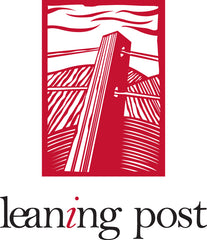
A leaning post is what you find at the beginning of a row of grapes, anchoring the wires that are the frame-work for growing grapevines. It is the beginning of an obsession to translate a time and place into liquid. Leaning Post wines take you to that beginning by finding small, unique plots of land in Niagara and putting them in bottle. Because after stripping away all the fancy buildings and high-tech equipment you are left with a place on this earth that grows wine unlike any other. When you taste that in a glass you just know it. Nadia and Ilya have had to rely on the support of family, friends and financial institutions to make the dream of owning a winery a reality. Leaning Post began as a virtual winery and is so proud to now have the quaint tasting room at 1491 Hwy 8 on their home property in Winona, Ontario.
Ilya and Nadia are the brains and passion behind Leaning Post Wines. It started with a dream to take unique, interesting single vineyard blocks in Niagara and turn them into distinctive, terroir driven wines. Nadia and Ilya first met in their hometown of Winnipeg, MB where their passion for wine and each other was born.
Ilya has been a winemaker in the Niagara Region for the last 17 vintages working at Daniel Lenko Estate Winery, Foreign Affair and now at Leaning Post Wines. Ilya is also a consulting winemaker at the Good Earth Winery. Ilya’s true passion in life is to make world renowned wines from Niagara that really showcase the distinct terroir that Niagara offers.
- White Wine
- Chardonnay
- Sustainable, Vegan-Friendly
- Dry
- Medium Bodied
- 750ml
- 13% alc./vol
About the Winery
Leaning Post

A leaning post is what you find at the beginning of a row of grapes, anchoring the wires that are the frame-work for growing grapevines. It is the beginning of an obsession to translate a time and place into liquid. Leaning Post wines take you to that beginning by finding small, unique plots of land in Niagara and putting them in bottle. Because after stripping away all the fancy buildings and high-tech equipment you are left with a place on this earth that grows wine unlike any other. When you taste that in a glass you just know it. Nadia and Ilya have had to rely on the support of family, friends and financial institutions to make the dream of owning a winery a reality. Leaning Post began as a virtual winery and is so proud to now have the quaint tasting room at 1491 Hwy 8 on their home property in Winona, Ontario.
Ilya and Nadia are the brains and passion behind Leaning Post Wines. It started with a dream to take unique, interesting single vineyard blocks in Niagara and turn them into distinctive, terroir driven wines. Nadia and Ilya first met in their hometown of Winnipeg, MB where their passion for wine and each other was born.
Ilya has been a winemaker in the Niagara Region for the last 17 vintages working at Daniel Lenko Estate Winery, Foreign Affair and now at Leaning Post Wines. Ilya is also a consulting winemaker at the Good Earth Winery. Ilya’s true passion in life is to make world renowned wines from Niagara that really showcase the distinct terroir that Niagara offers.
- Red Wine
- Cabernet Sauvignon, Merlot, Petit Verdot
- Dry
- Residual Sugar: 2 g/l
- Full Bodied
- 750ml
- 13.00% alc./vol
Press Reviews
Wine Align
92 points - Michael Godel
Always fun to have a gander backwards in Bordeaux, here from the 2008 vintage in the Macau en Médoc region near Margaux. The chateau dates back to the 1700s and this two-thirds to one-third cabernet sauvignon to merlot Haut-Médoc is quite youthful as compared to the 2006. A combination of reasons it would go to show, for one being two years apart and second a matter of comparative vintages. The ’06 is not one of greatest longevity while ’08 surely sneaks under the radar with aging capability. That said, as with the 2006, aeration causes a noticeable oxidation and decreased fruit energy. The wood still breathes, shows and exerts power, the secondary notes are in play but no real tertiary at this 13 year stage. Cool, mineral-licked, deeply resonant, roses and tar, even Cassis in its ethereal liqueur. Most definitely worth the price of admission, without a decant and a quick pour through six glasses. Drink 2021-2025.
- Sparkling Wine
- Pinot Noir
- Sustainable
- Light Bodied
- 750ml
- 12.5% alc./vol
About the Winery
Lighthall Vineyards
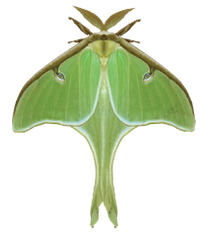 Lighthall Vineyards is a small, proud, low volume and high quality winery located in enchanting Prince Edward County, Ontario, Canada. All their wines are produced in a non-interventionist manner and fuelled by passion as hearty as our vines. They also make cheese, designed to pair with their wines.
Lighthall Vineyards is a small, proud, low volume and high quality winery located in enchanting Prince Edward County, Ontario, Canada. All their wines are produced in a non-interventionist manner and fuelled by passion as hearty as our vines. They also make cheese, designed to pair with their wines.
- Red Wine
- Carignan
- Natural
- Dry
- 750ml
About the Winery
Domaine Frédéric Brouca

Frédéric grew up in Normandy and met his Canadian wife Elaine at university in Lille, Northern France. They live a nomadic lifestyle (Canada, India, Singapore and USA) though Frédéric spends about half of his time in Faugères. Since early age, Frédéric had a calling for farming and the fierce desire to become a winegrower. After completing a Masters Degree in Finance in 2001, Frédéric went back to college for a Sommelier diploma and started his career as a Burgundy wine broker.
In late 2012, Frédéric and Elaine were fortunate to take over 25 acres of old vines in Faugères, organically farmed for twenty years and deeply rooted in schist soils.
2013 was the inaugural vintage for Domaine Frédéric Brouca. In his modest winery in the village of Laurens, Frédéric is creating a new vision for Faugères wines; fresh, vibrant and made without artifice. Nothing revolutionary, simply returning to our grandparent's ideology of farming and winemaking to craft 'Vins Vivants'. The Faugères Appellation is in the heart of Languedoc in the Hérault department. Here, winemaking dates back to the Greek times and was developed during the Roman Era. It wasn't until the early 1900's, however, that the wines became more widely known for its unique schist soils and moderate Mediterranean climate. These villages are heavily reliant on wine as an important part of their culture and economy.
The area is stunning with mountain views and close proximity to the Mediterranean Sea (20 miles / 30 kms). Faugères has a long history of responsible farming. It boasts the highest percentage of organic vineyards for any AOC in all of France with almost 50% of farmers making the choice.
Press Reviews
Wine Align
91 points - Michael Godel
Debut vintage of Frédéric Brouca’s Clair Des Champs, literally “clear fields,” a light red (not a Rosé) that the Faugères winemaker chooses to categorize as "Rouge Clair.” A new genre of wine perhaps, bright and light made by co-fermenting direct press mourvèdre on terret blanc and carignan. May not talk about or incite a revolution but it is clever and insightful, so there’s definitely that. It’s clear, crisp and clean, glou-glou as they say but also taut and beautiful. There is love involved, obviously not a political thing but important as a self-titled debut label. “Talking about a revolution? It sounds like a whisper.” Drink 2024-2026. Tasted December 2024.
90 points - John Szabo, MS
A blend of mourvèdre, cinsault and terret blanc made in a very pale red (or deep rosé) 'clairet' style, Brouca's 23 Clair des Champs is a clean, sapid and savoury wine with a very particular set of flavours, beyond any easy analogy. Ripe raspberry-type fruit meets a sort of meaty, amino acid-rich taste profile, while tannins are light and grainy and acids comfortably bright. With just 12% alcohol there's also a refreshing aspect to it. It's a wine to drink lightly chilled but not cold, over the next year or two. I appreciate the integrity and craftsmanship here. Tasted December 2024.
90 points - Sara d'Amato
A salty, clean and lively claret-style red made from a schist-grown blend, largely from Faugères, that includes mourvèdre, cinsault, and the more rare terret blanc. Dry and mineral with notes of puréed red fruit, cranberry, and thyme. I can easily see this at the holiday table. Light in alcohol at 12%, certified organic and with a very fine tannic presence. Highly accessible, ready to drink and a great deal of fun. Tasted December 2024.
- White Wine
- Furmint, Olaszrizling, Sauvignon Blanc
- Sustainable
- Dry
- 750ml
- White Wine
- Melon de Bourgogne
- Dry
- Residual Sugar: 3.00 g/l
- Light Bodied
- 750ml
- 12.00% alc./vol
- Sparkling Wine
- Sustainable, Vegan-Friendly
- Dry
- Medium Bodied
- 750ml
About the Winery
Leaning Post

A leaning post is what you find at the beginning of a row of grapes, anchoring the wires that are the frame-work for growing grapevines. It is the beginning of an obsession to translate a time and place into liquid. Leaning Post wines take you to that beginning by finding small, unique plots of land in Niagara and putting them in bottle. Because after stripping away all the fancy buildings and high-tech equipment you are left with a place on this earth that grows wine unlike any other. When you taste that in a glass you just know it. Nadia and Ilya have had to rely on the support of family, friends and financial institutions to make the dream of owning a winery a reality. Leaning Post began as a virtual winery and is so proud to now have the quaint tasting room at 1491 Hwy 8 on their home property in Winona, Ontario.
Ilya and Nadia are the brains and passion behind Leaning Post Wines. It started with a dream to take unique, interesting single vineyard blocks in Niagara and turn them into distinctive, terroir driven wines. Nadia and Ilya first met in their hometown of Winnipeg, MB where their passion for wine and each other was born.
Ilya has been a winemaker in the Niagara Region for the last 17 vintages working at Daniel Lenko Estate Winery, Foreign Affair and now at Leaning Post Wines. Ilya is also a consulting winemaker at the Good Earth Winery. Ilya’s true passion in life is to make world renowned wines from Niagara that really showcase the distinct terroir that Niagara offers.
- White Wine
- Chardonnay
- Organic
- Dry
- Medium Bodied
- 750ml
- 13% alc./vol
About the Winery
Domaine du Château de La Chaize
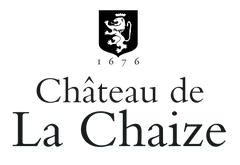
Château de La Chaize is among the oldest, most historic estates in Burgundy’s Beaujolais region. Cared for by the same family for nearly three and a half centuries, the estate has been passed on to new owners, the Gruy family, who are equally committed to managing the estate with the utmost care, while implementing an ambitious environmental plan. Among the many initiatives is the conversion of all vineyards to organic farming, the adoption of precision viticulture, reducing carbon their carbon footprint, and recycling every by-product from viti- and vinicultural activity, to achieve zero waste.
Founded in 1670 by the seneschal of Lyon François de la Chaize d’Aix, the main Château de la Chaize building and gardens were completed by Jules-Hardouin Mansart and André le Nôtre, respectively architect and gardener of the Château de Versailles. Château de la Chaize is among the oldest, most historic estates in Burgundy’s Beaujolais region. Boasting over 250 acres of vineyards, it is also one of the largest. It is today considered one of the most innovative estates in Burgundy. Among its forward- thinking practices is the adoption of eco-friendly farming techniques, commonly referred to as Agriculture Raisonnée. Chemical treatments have been reduced to a strict minimum, for example, and the growing of grass between rows has been re-introduced to enrich the soil and reduce erosion.
Press Reviews
Wine Enthusiast
90 points
This Beaujolais estate also has vines in Pouilly-Fuissé to the north. The wine has good minerality as well as ripe apple and spice. Lightly wood aged, it is a rich, structured and fruity. Drink the wine from late 2020. - Roger Voss
- White Wine
- Sauvignon Blanc
- Sustainable
- Dry
- Residual Sugar: 5.00 g/l
- Medium Bodied
- 750ml
- 13.00% alc./vol
About the Winery
Invivo

Invivo's journey began when two Kiwi friends, Rob and Tim, met in a London bar, determined to revolutionize the wine industry by creating a strong brand that defies tradition. Since 2008, Invivo has become a leading producer in New Zealand, winning over 600 medals and expanding operations across several countries. Through customer focus and innovation, including being one of the Southern Hemisphere's largest crowdfunded companies, Invivo has rapidly grown. Rejecting traditional winemaking norms, Invivo brings elegance from the old world to their original range, featuring Sauvignon Blanc, Pinot Gris, Chardonnay, Pinot Noir, and Rosé. Their collaborations with Graham Norton and Sarah Jessica Parker have further elevated their profile, embodying Invivo's vision of bringing people together to create greatness.
Press Reviews
Wine Orbit
93 Points - Sam Kim
Splendidly fruited and aromatic, the bouquet shows passionfruit, kiwifruit, rockmelon and kaffir lime characters, leading to a gorgeously flavoursome palate that's succulent and lingering. Upfront with excellent fruit purity and vibrancy, making it highly enjoyable. At its best: now to 2027.
- Red Wine
- Cabernet Franc
- Natural, Vegan-Friendly
- Dry
- Full Bodied
- 750ml
- 13.5% alc./vol
About the Winery
Celler Escoda-Sanahuja

Joan Ramón Escoda founded Celler Escoda Sanahuja in 1999 along with his wife Mari Carmen in Conca del Barbera, Catalonia. Since then, they have been disrupting the wine industry both in their home-country and internationally.
Celler Escoda Sanahuja was one of the first wineries that, back in 2005 stopped adding sulphites to their wines. Joan Ramon has always been a radical winemaker and a grass-roots innovator. His wild enthusiasm has been fuel for the natural winemaking scene, and has also led him to, spontaneously, create the 'Brutal' movement popular in natural wine circles. These are highly individual wines reflecting their origins and their innovative winemaker.
Pre-order: Place your order before March 15th by paying a $50 deposit, and receive your case of wine in early summer.
- Red Wine
- Gamay
- Sustainable, Vegan-Friendly
- Dry
- Medium Bodied
- 750ml
- 12% alc./vol
About the Winery
Leaning Post

A leaning post is what you find at the beginning of a row of grapes, anchoring the wires that are the frame-work for growing grapevines. It is the beginning of an obsession to translate a time and place into liquid. Leaning Post wines take you to that beginning by finding small, unique plots of land in Niagara and putting them in bottle. Because after stripping away all the fancy buildings and high-tech equipment you are left with a place on this earth that grows wine unlike any other. When you taste that in a glass you just know it. Nadia and Ilya have had to rely on the support of family, friends and financial institutions to make the dream of owning a winery a reality. Leaning Post began as a virtual winery and is so proud to now have the quaint tasting room at 1491 Hwy 8 on their home property in Winona, Ontario.
Ilya and Nadia are the brains and passion behind Leaning Post Wines. It started with a dream to take unique, interesting single vineyard blocks in Niagara and turn them into distinctive, terroir driven wines. Nadia and Ilya first met in their hometown of Winnipeg, MB where their passion for wine and each other was born.
Ilya has been a winemaker in the Niagara Region for the last 17 vintages working at Daniel Lenko Estate Winery, Foreign Affair and now at Leaning Post Wines. Ilya is also a consulting winemaker at the Good Earth Winery. Ilya’s true passion in life is to make world renowned wines from Niagara that really showcase the distinct terroir that Niagara offers.
- White Wine
- Sauvignon Blanc
- Sustainable
- Dry
- Residual Sugar: 4.00 g/l
- Medium Bodied
- 750ml
- 13.00% alc./vol
Press Reviews
Wine Orbit
93 Points - Sam Kim
Intensely aromatic and instantly appealing with fresh fig, kiwifruit, lime zest and jasmine characters, it's punchy and flavoursome in the mouth, delivering excellent weight and fruit purity. Delectably appealing with vibrancy and persistency. At its best: now to 2025Wonderfully fruited and immediately appealing, the wine shows passionfruit, feijoa, lime peel and subtle musky characters on the nose, followed by a succulent palate that is both powerful and delicious. It’s pristine and vibrant, and fabulously drinkable. At its best: now to 2022.
- White Wine
- Chardonnay
- Dry
- Residual Sugar: 2.00 g/l
- Medium Bodied
- 750ml
- 13.00% alc./vol
Press Reviews
WineAlign
91 Points - Michael Godel
As per a label’s meaning, “Per aspera ad astra,” from rough roads to the stars. Reiterated because this is the crux of the Nicolle situation for proprietor Charly, he who has had to work hard to bring a mom and pop Chablis estate into the modern world. A very encouraging and duly impressive Chablis at the AC Villages level, searing and intense with enough flesh to expand on the palate in spite of the conglomerate Kimmeridgian and Portlandian elements desiring to dominate. Reels at first but then constructs a necessary balance to make this a very fine wine. Way to go Charly. Drink 2024-2028.
- Red Wine
- Cinsault, Grenache, Syrah, Tinta Barroca
- Sustainable
- Dry
- Residual Sugar: 4.00 g/l
- Full Bodied
- 750ml
- 14.00% alc./vol
About the Winery
Mullineux & Leeu Family Wines
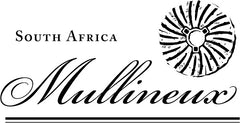
Mullineux Family Wines, established in 2007 in the Swartland region of South Africa, is owned and managed by Chris and Andrea Mullineux. Since its inception the winery has established itself as one of South Africa’s most celebrated wine brands, both locally and internationally. Originally from Northern California, Winemaker Andrea Mullineux studied Viticulture and Oenology at UC-Davis before working in Stellenbosch and meeting Chris at a wine festival in Champagne. Chris is the Viticulturist in charge of the vineyards on their farm on Kasteelberg Mountain as well as fruit sourcing for their value Kloof Street wines.
The vineyards at Roundstone are farmed organically and are in the process of becoming Regenerative Organic certified. This involves practices like crop rotation, no-till farming, and eliminating chemical pesticides and fertilizers. These methods help rehabilitate soil, promote animal welfare, and improve farmers' livelihoods while sequestering carbon and producing healthier yields. In the winery, no additives are used aside from minimal sulfur dioxide, and all operations are IPW certified, following environmental best practices. Waste, including grape skins and lees, is recycled or repurposed, and cellar effluent is processed through an eco-friendly wetland system.
Press Reviews
South Africa Special Report 2024
93 Points- Tim Atkin
'Almost too good,' mused Chris Mullineux when he poured this wine and I know what he means. Combining Syrah, 30% Grenache, 17% Tinta Barocca and 10% Cinsault, it massively over-delivers at its price point, with perfumed 30% whole bunches, bramble, red cherry and white pepper flavours and some granitic grip and freshness. Almost impossible to beat at the price. Drink date: 2024-2029. Best Value Red of the Year.
- White Wine
- Viura
- Sustainable
- Dry
- Residual Sugar: 1.7 g/l
- 750ml
- 13.5% alc./vol
About the Winery
Bideona
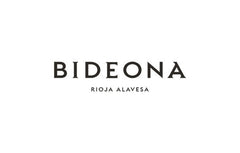
Bideona owns or manages over 300 parcels of extraordinary vines in villages throughout the Rioja Alavesa, the coolest, smallest and most Atlantic sub-zone of Spain’s most famous wine region.
The vineyards of the Rioja Alavesa are defined by parcels of old bush vines planted on terraces or hillside slopes with a high percentage of limestone. Located in the foothills of the Sierra Cantabria, Bideona’s vines have an average age of 50 years and many were planted in the 1920s, 30s and 40s, before high-yielding clones became available.
Bideona puts the focus firmly on terroir by making each wine in its Vino de Pueblo range as a field blend of Tempranillo and other native varieties from plots in an individual village. Each is named with an acronym – L3Z4 for Leza, L4GD4 for Laguardia, S4MG0 for Samaniego and V1BN4 for Villabuena – owing to DOCa Rioja regulations that only allow village names to be marked if both the winery and the vineyard are in the same location.
“Bideona’s reason for existence is to make wines that show the personality of the Rioja Alavesa and its historic wine villages” states company co-founder and director, Andreas Kubach MW. “We have access to a wealth of diverse plant material in our parcels of old vines, which we believe contributes to the complexity of the wines as well as the differences between villages.”
Press Reviews
Wine Align
93 points - David Lawrason
This is a high altitude, old vine viura from the foothills of the Cantambrian mountains in Rioja Alavesa. It has pure crystalline nose of lemon, pear, subtle chive and wet stone. It is crisp, taut and very well balanced with only 12.5% alcohol providing the sense of restraint. Really nicely done. The length is excellent. This should age very well, as the best white Riojas usually do, Might even expand its flavour profile. Tasted December 2024
92 points - Michael Godel
Quite the concentrated though also sharp and pointed white Rioja from Bideona called Las Parcelas which refers to the blocks chosen for this unique cuvée. Not just sharp but high acid to elevate the boldness of the build in a medium-bodied while also amply ripe viura that lowers significantly from 2020 to finish here at 12.6 percent alcohol. Comparatively speaking this is tighter and of a greater intensity without compromise, though fruit (other than citrus) does not dominate the poignancy of this truly salty vintage. Drink 2024-2027. Tasted December 2024.
91 points - Sara d'Amato
A relative newcomer to Rioja, Bodega Bideona was founded in 2018 and is a joint venture between Basque entrepreneur and txakoli producer, Gorka Izagirre and Península Viticulores, which is run by two Masters of Wine Andreas Kubach and Sam Harrop. The estate manages 100 hectares of vineyards in 300 plots across the foothills of the Sierra de Catabria that include a site planted in 1920. The "Las Parcelas" Blanco is made from 100% viura from various sites and features almond, yellow apple, pear, and just-ripe white peach. This juicy, lightly oily find is high in acid and salty, chalky mineral. Offers an appealing texture, little to no oak, a very good concentration of flavours and notable structure. Features a firm finish of memorable length. Tasted December 2024.
91 points - John Szabo, MS
A 'regional' wine in the Bideona internal classification, produced from multiple parcels throughout the Rioja Alavesa, absent oak influence, this is yet another impeccably-made, balanced wine from this highly reliable estate. I love the sapid acids, drawing saliva, the slight tug of tannins framing the autumnal fruit, the lingering finish. Succulent and saline, delicious and fairly priced. Drink or hold 3-4 years for maximum benefits. Tasted December 2024.
- White Wine
- Chardonnay
- Dry
- 750ml
About the Winery
Domaine Louis Moreau

Winemaker Louis Moreau is the master of the Chablis terroir, where he bottles 100% Chardonnay wines from all four levels of appellation: Petit Chablis, Chablis, Chablis Premier Crus and Chablis Grands Cru.
The Domaine owns parcels in five of the seven Grands Cru climats, and works with many plots throughout the region in a sustainable manner. The most prestigious of its wines is the monopole Chablis Grand Cru 'Clos des Hospices' dans Les Clos AOC 2016, acquired by the Moreau family in 1904.
Louis Moreau, who has been leading the domaine since 1994, produces wines with a unique style. Louis Moreau studied oenology-viticulture at Fresno State University and worked at different Californian wineries before he took over the Domaine's operations in 1994, representing the family's sixth generation of vignerons.
- White Wine
- Pinot Gris
- Sustainable
- Dry
- Medium Bodied
- 750ml
- 13% alc./vol
About the Winery
Lighthall Vineyards
 Lighthall Vineyards is a small, proud, low volume and high quality winery located in enchanting Prince Edward County, Ontario, Canada. All their wines are produced in a non-interventionist manner and fuelled by passion as hearty as our vines. They also make cheese, designed to pair with their wines.
Lighthall Vineyards is a small, proud, low volume and high quality winery located in enchanting Prince Edward County, Ontario, Canada. All their wines are produced in a non-interventionist manner and fuelled by passion as hearty as our vines. They also make cheese, designed to pair with their wines.
Press Reviews
Wine Align
91 points - Michael Godel
Lighthall’s pinot gris not only indicates but clearly demonstrates more richness and flesh than most varietal PEC iterations that have come before. Of course it never fully drifts away or leaves its PEC reality behind but the texture and radiance are at a high level in Glenn Symons’ 2021. Also the ever, if maybe even omnipresent chèvre waft that Lighthall’s last few vintages seem to possess, Loire like if you think about it and even pinot gris gets the messaging. When pinot gris shows character and individuality we must take notice. Drink 2022-2025. Tasted May 2022.
Featured in Vine Routes
From vineyards located within a warmer micro-territory (called South Bay) in the cooler Prince Edward County appellation, this pinot gris is refreshingly lighter on the ABV (12%/vol.) with a quite noticeably creamy and rich texture to it – largely attributed to malolactic fermentation and cold-stabilization methods. The winemaking team also uses an Alsatian yeast strain and fermented one quarter of the juice in neutral French oak, with the other 75 percent in steel tank. The result is a complex wine, with an intriguing flavour profile, including ripening pear and a freshened mineral characteristic that really sets this apart. I even get the hint of nutmeg that I’m being told to look for in this. Will develop further with a bit more time in bottle, that I am certain of.
- Red Wine
- Pinot Noir
- Sustainable, Volcanic
- Dry
- Residual Sugar: 2.00 g/l
- Medium Bodied
- 750ml
- 13.50% alc./vol
About the Winery
Vinos Baettig

Francisco Baettig and Carlos de Carlos have been friends for more than 20 years and share a passion for high-quality wines that are genuine and connected to the land where they are made.
"A promising project in a wine region that is the future of high-quality Chilean wines" - Patricio Tapia, Descorchados
Press Reviews
Wineanorak Global Wine Journal
93 Points - Jamie Goode
There’s nice spicy savoury detail here as well as ripe berry and cherry fruit. Bold and rich with good structure and firm berry fruits. A big style of Pinot with some oak in the mix. It’s ageing nicely
- White Wine
- Chardonnay
- Sustainable, Volcanic
- Dry
- Residual Sugar: 2.00 g/l
- Medium Bodied
- 750ml
- 12.50% alc./vol
About the Winery
Vinos Baettig

Francisco Baettig and Carlos de Carlos have been friends for more than 20 years and share a passion for high-quality wines that are genuine and connected to the land where they are made.
"A promising project in a wine region that is the future of high-quality Chilean wines" - Patricio Tapia, Descorchados
Press Reviews
James Suckling
95 Points - Zekun Shuai, Senior Editor
A warmer vintage gives the wine a little more substances but arguably less tension, acidity and minerality than 2022. Still, this is an incisive chardonnay, showing seashell, lemon zest and iodine character. Just a touch of pie crust. Medium- to full-bodied on the palate with fresh acidity and a mineral-driven finish. 26,000 bottles made. Delicious now but can hold.
Vinous Media
94 Points - Joaquín Hidalgo
The 2023 Vino de Viñedo Los Parientes Chardonnay originates from Traiguén, Araucanía. Aged for eight months in French oak barrels, this yellow hued wine reveals aromas of green apple subtly complimented by pineapple and ginger notes with a soft touch of acacia. Dry, creamy and taut on the palate, it offers an oily yet refreshing mouthfeel that lingers with a vibrant acidic edge. A deliciously nuanced and faintly textured Chardonnay, the 2023 closes with an enticing cedar finish.
- Red Wine
- Tempranillo
- Sustainable
- Dry
- Residual Sugar: 1.1 g/l
- 750ml
- 14.3% alc./vol
About the Winery
Bideona

Bideona owns or manages over 300 parcels of extraordinary vines in villages throughout the Rioja Alavesa, the coolest, smallest and most Atlantic sub-zone of Spain’s most famous wine region.
The vineyards of the Rioja Alavesa are defined by parcels of old bush vines planted on terraces or hillside slopes with a high percentage of limestone. Located in the foothills of the Sierra Cantabria, Bideona’s vines have an average age of 50 years and many were planted in the 1920s, 30s and 40s, before high-yielding clones became available.
Bideona puts the focus firmly on terroir by making each wine in its Vino de Pueblo range as a field blend of Tempranillo and other native varieties from plots in an individual village. Each is named with an acronym – L3Z4 for Leza, L4GD4 for Laguardia, S4MG0 for Samaniego and V1BN4 for Villabuena – owing to DOCa Rioja regulations that only allow village names to be marked if both the winery and the vineyard are in the same location.
“Bideona’s reason for existence is to make wines that show the personality of the Rioja Alavesa and its historic wine villages” states company co-founder and director, Andreas Kubach MW. “We have access to a wealth of diverse plant material in our parcels of old vines, which we believe contributes to the complexity of the wines as well as the differences between villages.”
Press Reviews
Wine Align
95 points - John Szabo, MS
From several high elevation parcels in the village of Samaniego, the youngest of which was 50 years in 2020, and the oldest 90 years, this is stunningly perfumed and elegant Rioja. Aromas and flavours feature sour cherry and wild resinous herbs, fresh rose petal, red currant and orange peel, while the palate is taut and tight, resting on riveting acids and fine but still grainy tannins. It seems to be moving slowly and needs another 2-3 years minimum I'd say to enter a primary drinking window. It will be an absolute beauty. Tasted December 2024.
92 points - Michael Godel
More crunch and savour than both the L4GD4 and V1BN4 and while not possessive of the same level of profound quality as both those wines this does deliver fineness in its own right. A reminder how this and its siblings are neither of Reserva or Gran Reserva distinctions but instead a look at viñedos singulares, newest of the Rioja categories. S4MG0 (Samaniego) hails from the higher slopes of a paraje (spot) at Samaniego and the herbal, think minty cool exhale from the tempranillo is so different than what comes out of the other Viños de Pueblo wines. Nearly evergreen as the finish and a delight with good weight, all parts coming together at the finish. Drink 2024-2028. Tasted December 2024.
93 points - David Lawrason
Bideona was formed in 2018, selecting from over 300 small, old vine parcels in Rioja Alavesa. This is from old vines at the highest altitude near the village of Samaniego. Despite the colour depth and 14.5% alcohol there is a lightness of being here as a result. The nose shows blackberry, subtle minty herbs and spice. It is medium weight, fairly supple and warming. Quite dusty tannins here. The length is excellent. My favourite of four bottlings tasted side by side in December 2024
- White Wine
- Chenin Blanc
- Sustainable
- Dry
- Residual Sugar: 3.00 g/l
- Medium Bodied
- 750ml
- 12.50% alc./vol




























